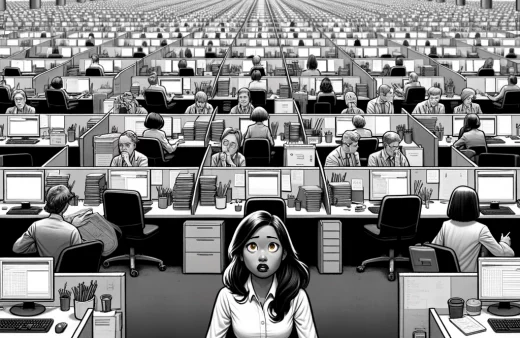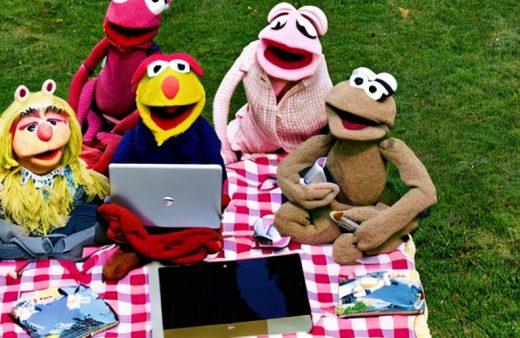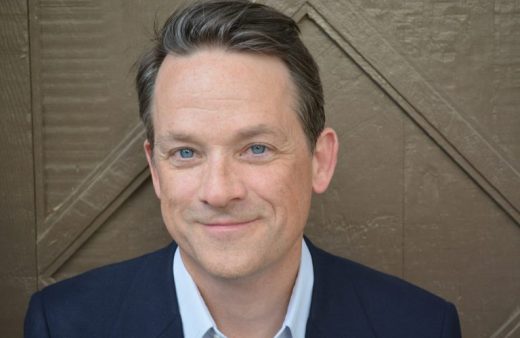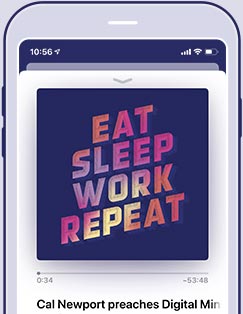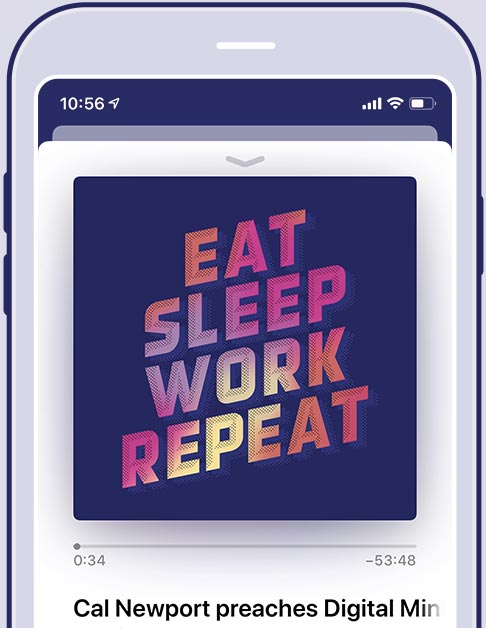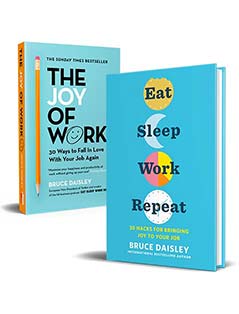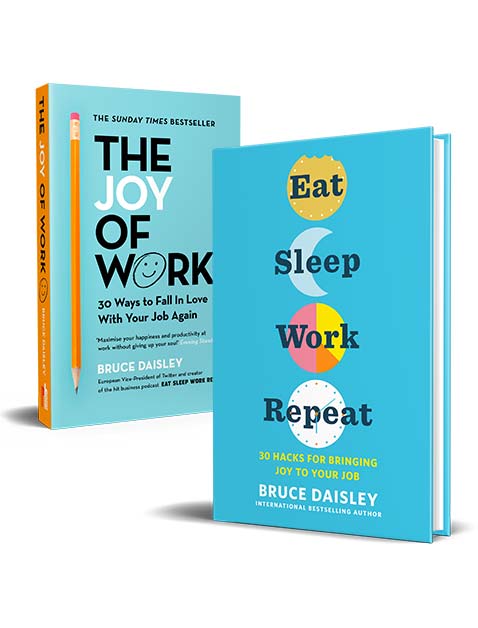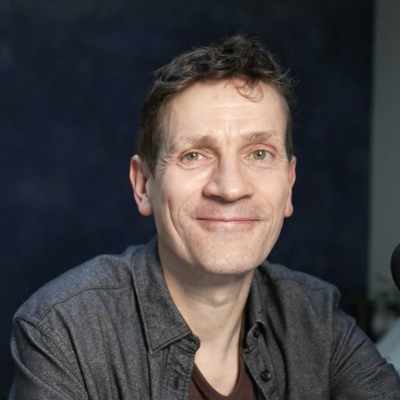Fish! Time to revisit a culture classic?
If you’re interested in Fish you should check out their website also John has a new podcast called the Joy Cafe podcast about the Fish philosophy and where it has worked.
Transcript
In the 2000s a book called Fish! A remarkable way to boost morale and improve results became a bestseller. A small book, it was often used by companies accompanying a video of the same name. Together the two told a story of the culture of the fish market in Seattle, a noisy, bombastic place, but a place that was filled with joy. I first encountered Fish when a firm came to pitch to me when I was working in publishing. They told me that their culture was Fish.
There are a few things that stood out from it. The idea of intentionally designing culture isn’t new but this seemed to be explicitly linking culture, emotion and mood.
There were 4 principles of Fish
- Play
- be there
- make their day
- choose your attitude
All of them are worth reflecting on but the one that felt most timely was ‘be there’. How many of us can say we’re being there on our video calls. I see this as being present. Of listening – or taking things in. How many of us can say we are present when we’re on our 8th video call of the day. When we tappning away on emails to try to finish on time.
If our culture feels absent right now well maybe it’s because we have an absent form of work. Maybe we all need to work out how to ‘be there’. To be present.
Today I’m going to speak to two of the book’s three writers. John Christensen, was a film maker who will tell you about the discovery of the market. Harry Paul was one of the creators of the book alongside Stephen Lundin.
Let me give some balance – For some people the idea of choosing mood at work will be a troublesome one. Way back in the archive of Eat Sleep Work Repeat there’s an interview with Professor Richard Claydon who says in the long term many people recognise that to get on with work they need to look like they agree with the nonsense around them and a performative irony develops.
The criticisms of the book say it feels patronising or like an idealised version of work.
With all of the caveats that come from anything that espouses a simple solution I personally find it a fascinating provocation. I listen to things like this and ask myself, ok if not this then what would work.
Certainly the idea that our mindset can help create the conditions for our work being enjoyable is worth exploring for me. If you’ve worked in restaurants or in the service industry you know it’s a non negotiable to turn up and be cheerful. I once saw an interview with the founder of Pret A Manger who said they hired for attitude first and foremost.
There’s a whole transcript of this episode in the shownotes.
Let’s dive in. Firstly John Christensen explained to me how the film about Seattle’s fish market came to be created.
John
the back story is that I had this deep desire to make a film that made a difference in the world because that’s what my father had done. So I was on the search and it was a long time, but I had the intention of saying, I wanna make a film with people doing their work with passion. And lo and behold, I was on another film shoot up in Seattle and Saturday morning I got up and I went shopping and I went and saw this, you know, saw the sights and sounds of Seattle. And lo and behold, I was presented with this place where the guys were engaging with customers in a way that I’ve never seen them.
They were hugging them. They were getting down on their knees talking to the children. They were yelling to customers across the street, come, I’ve got your fish. Come and get it when you go on the way home. And so I was really intrigued. It hit me. Here’s the place. Here’s this place with people working with passion and engagement. So first and foremost, I thought, well, wow, that’s a great way to live in my workplace. I mean, to have this excitement, this passion for what you’re doing. And by the way, they were they were playing. I mean, you know, you’re just hugging customers and throwing fish. There was this atmosphere of creativity that was going on. So it really all that common that combination intrigued me and saying, there’s something magical happening here.
Bruce:
So the Fish market represented this fizzily active place – and we’ll come on to some of the caveats that that brings later on. John and his co-authors decided to aritculate what they say there. It was this approach that has sold millons of books. They boiled it down into 4 practices.
- Be there
- Play
- Make their day
- Choose your attitude
I asked John to explain what these concepts meant for them.
John
So we’ve been working on the arrangement of how to tell them, teach them, share them. And we’re coming to the conclusion that we start with choose your attitude. So the four practices are choose your attitude, be there, play and make their day. Now, we start off with choose your attitude of saying, choosing your attitude, understanding that you get up in the morning and have the intention of what am I choosing?
How am I choosing this day to go? How am I choosing to show up? There’s a lot of things that go on in people’s lives, but you can choose how you react to things. So that’s the first one of saying, choice. You have a choice. Hey, you can choose crabby if you want to. That’s a perfect choice if you’re in a bad mood that day, but know that you chose that, right? Own that choice.
But the other thing is that people during the day can also see that if you have that choice that you’ve made that you’re going to be crabby or upset, people can come and help you. That’s the other opening for fish is to say the ability to coach each other, the ability to approach someone in your organization. And, and ultimately it’s the ability that the person who’s on the job for the first day to talk to the leader and say, Hey,
You said that this was the way we were supposed to show up in the world and you weren’t doing that. That’s the ultimate of coaching and feedback. When people are open to their subordinates, shall we say subordinates, their associates that can come up to them and say, hey, you didn’t you didn’t act very, very nice there.
I’ve heard the stories of Southwest Airlines. It’s interesting, they do group interviews. This is what they used to do. They used to do group interviews. And what was fascinating was they weren’t just looking at the person that was on the hotspot, for instance. They were watching the reactions to the people in the group. So if they were people that were going enthusiastic about the person, right, going, oh, that’s, you know.
They didn’t even have to speak up, but they could see their body language saying, way to go, you know, you answered that question really well. That’s attitude, right? And when you do, you have to look for attitude.
That’s crazy. I mean, so it’s the way you show up. I love the saying, wake up to how you show up. Wake up to how you show up. So that’s the choose your attitude piece. The second one is be there, being present in the moment. How many times have you gone into a…
establishment and the cashier is checked out. I mean they’re not even acknowledging that you’re there, right? It goes both ways too, by the way. Sometimes you’re on the phone checking out at a grocery store or something and you’re on the phone not paying attention to the cashier. So it goes both ways in that respect of being present to people, right? So be there. Be in the moment. Set aside things.
Here’s co-author Harry Paul explaining what Be There means for him (it’s a slightly tinny line I had to him, I think he might have been sitting in a saucepan)
Harry Paul
First of all, I think it’s one of my favorite of the four parts of the fish philosophy, especially when you pair it with choose your attitude. But being present in your description means acting like I want to be somewhere else. Because when you’re on that, as you said, it’s very easy to drift off. very easy to drift off in person. How many times have we seen that blank stare in somebody when we’re face to face with them? And we could be speaking with them and then it’s like, you know, all of a sudden, hello, are you paying attention? I think you have to dig a little deeper into what be there is. For me, being there is understanding why you’re there, understanding the importance of why you’re there. And then you can start building upon that.
I remember going to, uh, in New York with my daughter when we were looking at grad schools for her and we went to the, uh, Museum of Modern Art where the, uh, Starry Night by Vincent van Gogh is. Fabulous painting. And we walk in there and it’s just, it’s one of the best paintings. It’s just pure energy. And, but the museum guard is there and he’s, you know, he has that kind of slumped over, I don’t want to be here type attitude and physicality and my daughter walks up to him and she goes, you are so lucky. And he kind of looks at her. She goes, you have the greatest job in the world. And he takes a step back. Well, it’s my daughter. I want to see what’s going to happen. I just, I’m watching. She goes, you realize.
You get to stand here all day surrounded by all this beautiful artwork and you get to stare at a starry night anytime you want to. His whole demeanor changed. And we don’t know how long it lasted, but she made a difference and she gave him a different perspective. And that’s what I think underlies being there. It’s very easy to say present, but why are you there?
It’s worth adding an important qualification here. In the work of Zeynep Ton she looked at PayPal. She found that many of the employees of PayPal (effectively those who worked in contact centres handling calls and messages) weren’t financially secure. They weren’t earning enough to get by. PayPal leaders had told themselves they paid above or at the market norm but it left employees struggling with unexpected costs. When employees received messages on high about culture it was irrelevant to them until their basic needs were met. It goes without saying that if you want people to turn up a certain way at work you need to fulfill the core criteria of providing Good Jobs.
Here’s John again on the value of being present, of being there:
The biggest example we had was leaders saying, you know, I used to be on the computer with my back towards people and they came into my office and they’d be saying, you know, I’ve got this little problem, the situation I need to be working, you know, work out. Can you help me? And the manager is still sitting, the leader is still sitting on the computer typing, listening. I’m listening. No, you’re not really listening. And they said, when we taught them this, the manager said, I stopped. I turned around.
your podcast with Francis, Francis Frei, she got it right on. I mean, of saying we need to cut meetings down. I mean, what’s the point of it?
You need to be in your work. You need to be being present at what you’re about and what you’re doing. And as she said, when she goes into organizations and they work with that and they cut the meeting times down, the work, the production goes up, right? And that’s being aware. Let’s be aware of that. So that’s being there. That’s being present to the moment, right?
Let’s go on and talk about the last 2 of the practices. Make their day and Play. Here’s John talking about Play.
I put play as number three because I use play. Now, play has been people run to it or they run away from it, okay? Because they see play as fun and frivolous. You know, work is work. You’re not supposed to play at work, right? No, but what we’ve discovered is that play is using your creativity, using your childlike curiosity to say, how do we…
How do we play with this idea? How do we work on this? Even Einstein says play is the great curious piece of innovation. It’s the step to innovation. You’re playing with ideas, you’re playing with things, right? It’s a sad thing, but they’re cutting out recess in schools all over the world, right? And then play, that’s where we learn sometimes, yes, there’s bullying going on in the playground, but that’s also the time.
where the play happens, your creativity. There’s a stick and a rock and kids create a new game. Or how do I get along socially with somebody else on the playground? It’s the playing. And we’re missing a lot of the play and innovation in organizations because we’re not open to that curiosity. We’re not open to that freedom of playing with ideas or playing with concepts.
The final practice is Make Their Day – John makes mention of a story that former guest Frances Frei said on the show.
John
Absolutely. And, and throughout your podcast, I’ve been listening, people are creating these great memories, right? Those, I call them vision moments, right? Where the associate is making those moments for guests for clients. I mean, the perfect example was the Thomas the Tank Engine/Train at the Ritz Carlton, right? Where the associate goes out, the child lost the train somewhere in the in the hotel.
and an associate goes out and buys another one and takes pictures of Thomas in the kitchen and Thomas by the pool and then brings the child the gift of the toy and the photos. I mean those are memorable moments. You think that make their day moment would have happened if the environment was we don’t play here? You can’t use your creativity? You can’t do that for a guest? What are you crazy?
Bruce
Did you watch the latest series of The Bear? I don’t know if you watched that.
John
I haven’t, but you intrigued me with your conversation again with Francis
Bruce
But there’s a really interesting episode and it takes its inspiration by a book called Unreasonable Hospitality. And this book, Unreasonable Hospitality, the guy who articulates it as a restaurant founder and he looked at how people found themselves winning the highest accolades as the best restaurant in the world. And he realized that everyone had innovated with cuisine and he was..
He said, I want to be the first one who innovates with hospitality. Anyway, so what eventually happened was that he set about thinking, we want to create somewhere that’s so desirable because we create a level of hospitality that’s better than anything else. And the bear does some degree of tribute of trying to take some of the ideas. So the idea that he did was that he took someone’s was saying, we’ve come to New York and we’ve not had a famous New York hot dog.
And he sent someone out to the street to buy a hot dog. And then they presented it in a haute cuisine way. And so the bear takes the same. It goes in, someone says, I can’t believe we’ve come to Chicago and not had for famous Chicago pizza pie. And so they go out and they do. So they take the original idea, but all of it effectively is paying tribute to that idea of make someone’s day and, and to create a customer reaction, a customer interaction.Yeah, experience that’s so singular. It goes really to the heart of it. Their philosophy there, that unreasonable hospitality takes real inspiration from the work that you’ve done.
So that’s the essence of it – laying down how we might interact with each other. To some extent giving permission to interact with warmth and emotion. It’s worth saying that there might only certain circumstances where Fish works – heres Harry Paul on that.
Harry Paul
fish works, but it has to be in a culture that allows it to work.
And how I’ve developed it over the years is it’s creating a culture of excellence with the fish philosophy. Otherwise, if you’re in kind of a toxic negative culture, I think people will look for ways of not letting it do what it can do. and learned. And then you have to have great communication skills, flexibility when you’re going in one direction and all of a sudden you get a right -hand turn. Very similar to what happened in ‘20/’21 with COVID. And then ownership, take responsibility. And when you have that in an organization, I believe it allows the fish philosophy.
Choose your attitude, play, be there, make their day to work perfectly. And I think they go hand in hand because if you don’t have passion, what do you have? Indifference. If you don’t have good communication skills, you have miscommunication. If you don’t have that competency that you’re constantly building, you have incompetence and inflexible. Well, we’ve always done it this way. We’re not going to change. That’s just the way it is.
And believe me, we see that all the time. And then ownership, take responsibility. Because what’s the worst thing we ever hear? Whether we’re dealing with coworkers or out in the world where we have to interact with customer service. It’s not my job. And what happens at that point? Our blood starts to boil. We don’t, our emotions take over and nothing really gets done or gets done well.
I pushed John on the value of thinking about culture. An organisation had said to me previously that no one could show culture on the balance sheet. That two different organisations could be assessed, one could have a better culture and it wouldn’t have better results. (and by the way Zeynep Ton’s work challenges this). Here’s John
John
That’s almost the bean counters talking and saying, you know, you know, yeah, I’ve sang the CFOs and the accountants and the bookkeepers. They’re not seeing the intrinsic value that’s happening. You know that that’s, that’s the bottom line. Well, I’ve got a great quote. We, I worked with a poet named David White. He’s an English, Irish poet. And David White says we, you know, sometimes we leave.
that we open the windows of our cars before we go to work. Sometimes to think that we’re letting the air flow through to keep the upholstery, you know, well, but what it is really doing maybe is just saving that little part of ourselves that we leave behind. You know, how much, and it’s also the way we look at work. Are we looking at work as a prison that I’ve got to go to work today?
Or are we looking at this as an opportunity to give my passion, to give myself to do something of value in my life?
Ok – so let’s get practical. What organisations have introduced this and what success have they had.
John
It was because those were service industries. People went into those industries because they wanna serve others. Teachers wanna create the next generation, help inspire the next generation. Nurses are there because they care about people. And so the deep undertone of Fish was again, waking up to how you show up. Who are you being? It took us almost…
seven, eight months after the film was out, there’s one line that we actually threw away. I mean, it was a throwaway line in the film. It was a nice line when we heard it in the film, when we kept it in. But then when people watched the film and we studied it, we saw that was the poignant piece of the film. There’s a, Ronnie in the film says, who are you being while you’re doing what you’re doing? Who are you being while you’re doing what you’re doing?
Now, the fishmongers made the claim, the intention, that we’re going to become world famous, right? They set that out and said, we’ll become world famous. We’re a 1,300 square foot little fish market in an open air market, and we’re gonna become world famous. At first, they were like, what are you, crazy? The piece was, when you’re being world famous, you’re going to be doing
different things than just being average or ordinary. What am I doing today that’s going to make me world famous? How am I showing up in a way that then again, then we put the four practices in place. How am I being there for a client that’s going to be world famous service? How am I going to be playing with the customer?
using my creativity to engage with this customer to make this moment memorable enough to be world famous right how am i going to make their day so they walk away and go ahead
how it’s affected people’s lives. That’s incredible. I mean, if we can take one child from being bullied in a school, of helping a school understand that the language of fish helps create the community in the classroom. And if children are hearing this every day and learning this about the fact that we’re choosing how we show up. We’re choosing to be there for each other. We’re choosing to make their day. I know this is a silly little thing, but they have popsicle sticks in like third grade classrooms, right? With every child’s name on the popsicle stick and every day a child first comes in and pulls, draws a popsicle stick with another child’s name on it. And they…
Their job for that day is to make someone’s day. Make that child who you just pulled out their name, make their day. Do something, let them cut in line, let them be in line with you, help them with the homework question, help them with the math problem. And then they go up and they have a white paper on the wall and you write down what you did to make somebody’s day, or you write down somebody who made your day and what did they do to make your day. Now, if we start early enough on understanding
that if we teach third graders, second graders, how to be present to others, how to make somebody’s day, the bullying will go away because you’re in community with others, right? So those stories, when we hear stories about kids who say, people now treating me better, even one student said to the principal, I love this fish philosophy. And the principal said, why?
And the child answers, because you listen to me. My teachers listen to me. That’s powerful.
John
I have another buddy who is a great leader. He’s an absolute fish philosopher leader. And he’s gone into many organizations bring him in now because he’s helped transform the shop floor. He started off at Starbucks, learned about fish at Starbucks, brought it to another coffee roasting company.
and transformed, they were losing $200,000 a year. And he turned it around that they were making $200,000 a month afterwards. And the simplicity of what he said and what he did was that he was just being there for people. He listened to the people on the shop floor. Instead of the engineers telling the people how to re-engage their machines and how to rearrange them, he went down as a leader and said, hey, Joe, how can we make your machine better?
Oh, well, let me tell you, I can do this to this and retool that and we can make this thing, you know, turn out more. And it would phenomenal again, and the turnover rate went from like 38% down to 12. I mean, phenomenal. So it’s the way we show up. It’s how we’re showing up for others. Again, waking up to how we show up.
While it’s 20 years since Fish first came into the world there are a couple of lessons that we can take from it. That we can design our culture explicitly. But most critically for me there was an important lesson. A strong culture requires a sense of presence. We need – in the wording of the authors – to be there. How often is contemporary, disconnected culture characterised as a vacant absence. I’ve worked with a couple of institutions whose culture is to be cameras off ALL DAY. It’s a horrible zombie culture that is filled with disembodied connection. But the people who work in those organisations say ‘we’re too busy to be cameras on, it’s too exhausting’. It’s clear that if we’re going to build connected cultures we need to create the conditions for presence, not just order it.
Thank you to Harry and John


